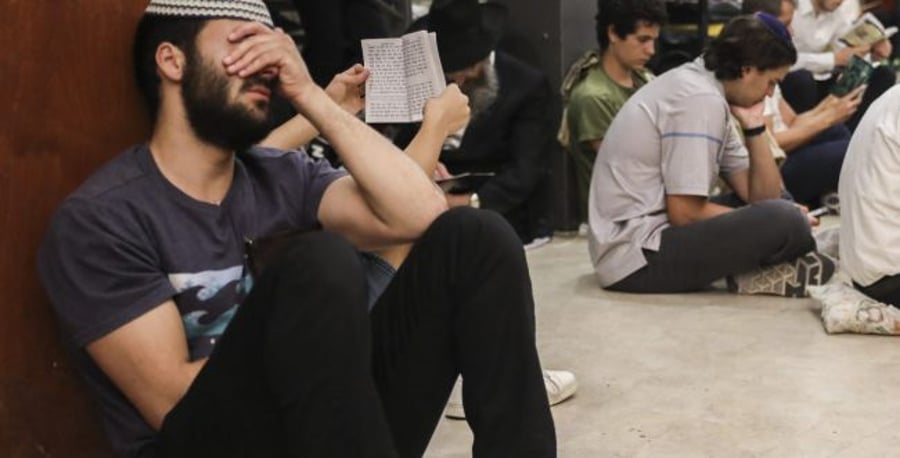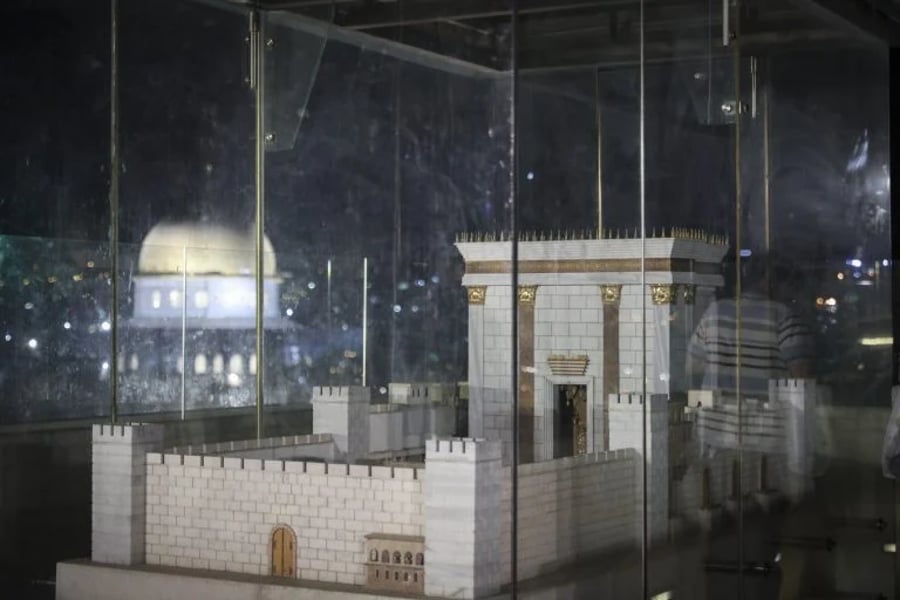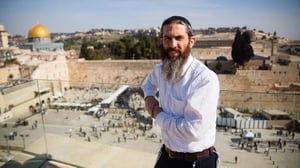
When Av enters, we decrease our joy. We don't entertain, refrain from eating meat and drinking wine, and prepare ourselves for the National Day of Mourning, Tisha B'Av. However, a quick glance at the media leading up to the events of Tisha B'Av can teach us that this fasting day no longer solely deals with the destruction of the Temple, the reasons that led to it, or mourning rituals.
Analysis of the various programs will teach the thoughtful observer that Tisha B'Av is a day dedicated to Torah study on a day when learning is prohibited, even though the title will always be "On this night, we do not study Torah." It is a day dedicated to gatherings and circles of conversation, despite the injunction "He should sit alone in silence." It is also a day dedicated to speaking about the vision, hope, and rebuilding, instead of a day solely focused on mourning and weeping for the destruction.
"For many long years, we don't know what to do with Tisha B'Av."
"For many long years, we don't know what to do with Tisha B'Av. Sitting alone in the darkness of the rooms, perhaps like our grandmothers in Poland, but facing a Jewish sovereign state, the dirges, tears, and prayers of "comfort" seem disconnected from the reality in which we live.
Unlike personal or familial mourning where we recognize the need to sit on the ground, abstain from joy, and engage in solitary reflection as a means to cope with the pain, the request to apply these customs to mourning for Jerusalem appears irrelevant to us in a city bustling with life and Torah, home to almost a million residents of all faiths."

The challenge of Tisha B'Av is the challenge of Israeli society and the State of Israel as a whole - how to preserve the memory of the destruction while keeping it relevant and still be able to look with open eyes at the reality we live in, acknowledging the fact that we live in a period of the rebuilding of the Third Temple, and translating this complexity into practical work practices that express this duality.
"Not destruction, but what then?"
For many years, the law that prohibited opening businesses on the night of Tisha B'Av was enough to provoke meaningful discussions. However, in recent years, along with the opposition to the law itself, the State of Israel and Israeli society need to ask not only what is forbidden but also how to mark this day and, most importantly, what message we want to resonate. "Not destruction, but what then?"
The State of Israel is at a critical juncture in its identity as both Jewish and democratic, and currently, it seems that we are struggling to maintain the balance, failing to create a Jewish and democratic language that simultaneously looks back, acknowledges the present, and envisions a future for the Israeli reality.

We need a new language.
We need educators, society, and public policy makers who will together build a different reality – one that establishes a new covenant for Israeli society, a "Path Covenant" where we all feel committed to the State of Israel and are ready to walk together on this path with responsibility and respect for the educational and national challenge.
We need a new language, one that will transform Tisha B'Av, and the State of Israel as a whole, into a new opportunity for connecting the past and the future, not remaining alone in the darkness but behaving more like our grandmothers from Algeria who took a broom and started cleaning up the environment towards a new construction.
==
Rabbi Yuval Ahali is a content developer and pedagogical guide at the "Yesodot" Association at the Herzog College.
















0 Comments